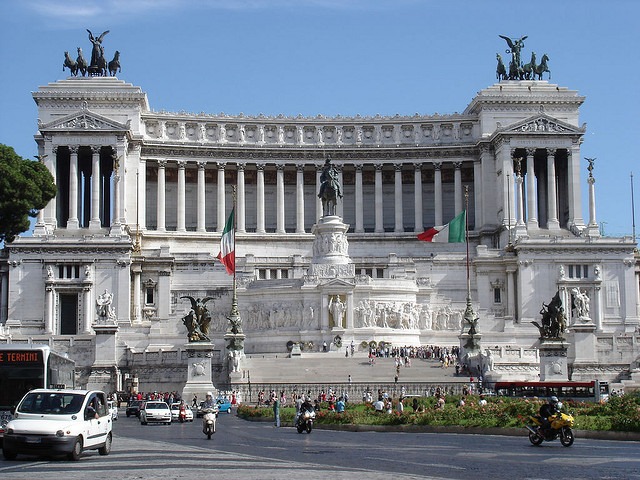
Italy’s prime minister Silvio Berlusconi won a vote on the ratification of the 2010 public accounts on November 8, but obtained only 308 votes, eight short of an absolute majority in the 630-seat Chamber of Deputies. He signalled he would resign after parliament passed austerity measures demanded by Brussels.
Italy’s 2-year and 10-year bond yields rose above 7 per cent on November 9, a level that is considered unsustainable for financing debt. When yields on 10-year debt in Greece, Ireland and Portugal went beyond 7 per cent, these countries were forced to ask for bailouts.
Italy is the world’s third-largest bond market and eighth-biggest economy. At €1.9 trillion, the equivalent of 120 per cent of GDP, Italy’s debt exceeds debts of Greece, Spain, Portugal and Ireland combined.
The European Financial Stability Facility (EFSF), the €440 billion eurozone’s rescue fund, has only €250 billion available after providing a financial aid for Greece, Ireland and Portugal. Italy’s debt is too big for the EFSF firepower.
The EFSF could provide Italy only a limited amount of credit at present, anywhere around €100 billion, which would get used in half a year or so.
The International Monetary Fund also doesn’t have enough money in hand to cover Italy’s borrowing needs for a longer period of time. The IMF could provide only about €300 billion, which is barely enough to last Italy through 2012 (Rome must refinance €300 billion in debt next year).
The only one institution, which can bring stability into the eurozone, is the European Central Bank as it has the unlimited firepower, because it can literally print money. Some eurozone governments have argued that the ECB should become the eurozone’s lender of last resort, willing to guarantee that funds will always be available to buy bonds of financially distressed eurozone member states.
Germany, however, feels uncomfortable with the extent of the ECB’s involvement in bond markets. Two high profile resignations – the former Bundesbank president and member of the ECB governing council Axel Weber and the former chief economist of the ECB Jurgen Stark – are believed to have been linked to their opposition to the ECB’s bond buying programme. Both have argued that the ECB should remain responsible for maintaining price stability. The Deutsche Bundesbank president Jens Weidmann has said that the ECB cannot rescue governments by printing money.
Mr Berlusconi is the last surviving prime minister of the eurozone’s crisis-stricken periphery. In February 2011, the banking crisis brought down the Irish government led by prime minister Brian Cowen. On March 23, the Portuguese government of prime minister Josē Socrates was brought down in a vote over the implementation of a new package of austerity measures. The opposition Social Democratic party won a general election on June 5, collecting 39 per cent of the vote. On November 5, Greece’s prime minister George Papandreou won a confidence vote in parliament and called for the formation of a government of national unity. Spain’s Socialist prime minister Josē Luis Rodriguez Zapatero said that he would not seek re-election. Mariano Rajoy, leader of the opposition conservative People’s party (PP), is destined to become prime minister after a general election due on November 20.
Mr Berlusconi has failed in almost nine years as prime minister to reform the country. The lack of economic growth has pushed Italy’s public debt to a whopping 120 per cent of GDP, the rich world’s third-biggest. Between 2001 and 2010, the economy grew less than any other country in the world, except Haiti and Zimbabwe. It is estimated that the economy would grow 0.7 per cent in 2011 and 0.6 per cent in 2012. The unemployment rate hit 8.3 per cent in September. The female participation rate in the workforce stands at just 46.1 per cent, the lowest in western Europe (according to data from the Italian National Institute of Statistics). Current projections suggest that there would be only about two Italians aged 20-64 for every pensioner by 2030. The economy desperately needs structural reforms.
photo: Russell Yarwood / flickr.com / CC BY-SA 2.0